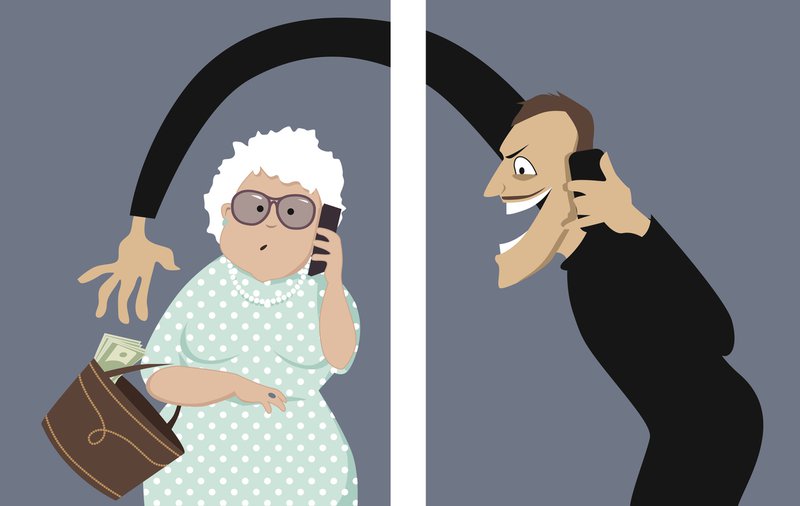
June 25, 2019
Elder abuse and fraud—long a problem—are getting new attention these days.
Yet adult children and other family members should still take steps to help keep elderly loved ones safe—a tricky process given the sensitivity of talking about money and aging. “It really does take a village,” says Marguerita Cheng, a certified financial planner and CEO of Blue Ocean Global Wealth and a member of the DC Elder Abuse Prevention Committee.

The challenge is vast. One in 10 U.S. adults age 60 or older experience some form of abuse each year, according to research cited by the U.S. Government Accountability Office. Abuse can be physical, emotional or financial, and anyone from caregivers to ordinary criminals can be responsible.
Older adults are particularly at risk for a number of reasons, Cheng says. Age-related changes in the brain or medication can make older people more vulnerable; technology offers new channels for exploitation; and criminals recognize these opportunities.
Recent data from the Federal Trade Commission found that people age 60 and over were about five times more likely than younger people to lose money on tech-support scams—based on complaints filed—even though they were less likely to lose money in many other types of fraud.
Here’s how you can help.
Begin with the facts
A good way to start is with your own experience sidestepping a fraudulent call or email—odds are you’ve fielded a few—noting that people of all ages are being targeted by sophisticated scams. You can also point out how technology has opened doors to new kinds of scams.
“Unfortunately, there’s no shortage of instances of elderly people being taken advantage of financially,” says Matt Wyner, a senior vice president at KeyBank. “Opening the dialogue by sharing facts of the types of dangers out there is a good way to enter into the conversation with a parent.”
Give them a key piece of advice
Criminals have created elaborate schemes for siphoning off money or tricking people into giving them cash, but one of the most common channels for defrauding older people is still the telephone.
“The most common situation [of fraud] we see is people sharing information,” says Wyner. The Internal Revenue Service, Social Security Administration and other government agencies don’t contact people by phone; any call from someone purporting to be with them is likely a fraud.
Although banks, credit-card companies and other institutions may contact account holders, they generally don’t ask for account details in calls they initiate.
For these reasons, adult children can offer their parents a relatively simple piece of advice: If you receive a call, don’t share any personal information. Hang up and contact the financial institution using the phone number on their statement or credit card. (Consider writing this down and putting it near the phone, or with important phone numbers or financial information.)
Offer to be an extra set of eyes
Because abuse and fraud can stem from any number of places, it’s good to put checks and balances in place. For example, many of Cheng’s older clients request duplicate statements for their adult children, allowing them to see account activity but not make changes, and invite them to sit in on planning meetings.
“We talk about it as having an extra set of eyes and ears,” says Cheng, noting that this can also be a good measure in the event an elderly parent runs into health problems or needs help for other reasons.
That said, when Cheng talks to clients about bringing their adult children into the conversation, she emphasizes that it is still the client’s money and that they still have control.
Set up additional safeguards
Technology has opened new avenues for fraud, but it can also help put some parameters around account use and flag suspicious activity. Most banks, credit-card issuers and other financial services companies offer security tools that notify authorized account users of new log-in activity, unusual spending, unpaid bills, and low balances.
“Some of the initial signs that there is fraud or a red flag on an account would be bills that aren’t paid, overdrafting the account, strange subscriptions that show up on credit card bills, and low balances,” says Wyner.
If they need to, adult children can take this a step further. Among other services designed to help caregivers, True Link Financial offers a prepaid Visa card with text alerts about card activity, as well as the ability to block purchase over the phone or for certain categories of spending.
Email: editors@barrons.com
This Barron's article was legally licensed by AdvisorStream.
Copyright 2019 Dow Jones & Company, Inc. All Rights Reserved.


